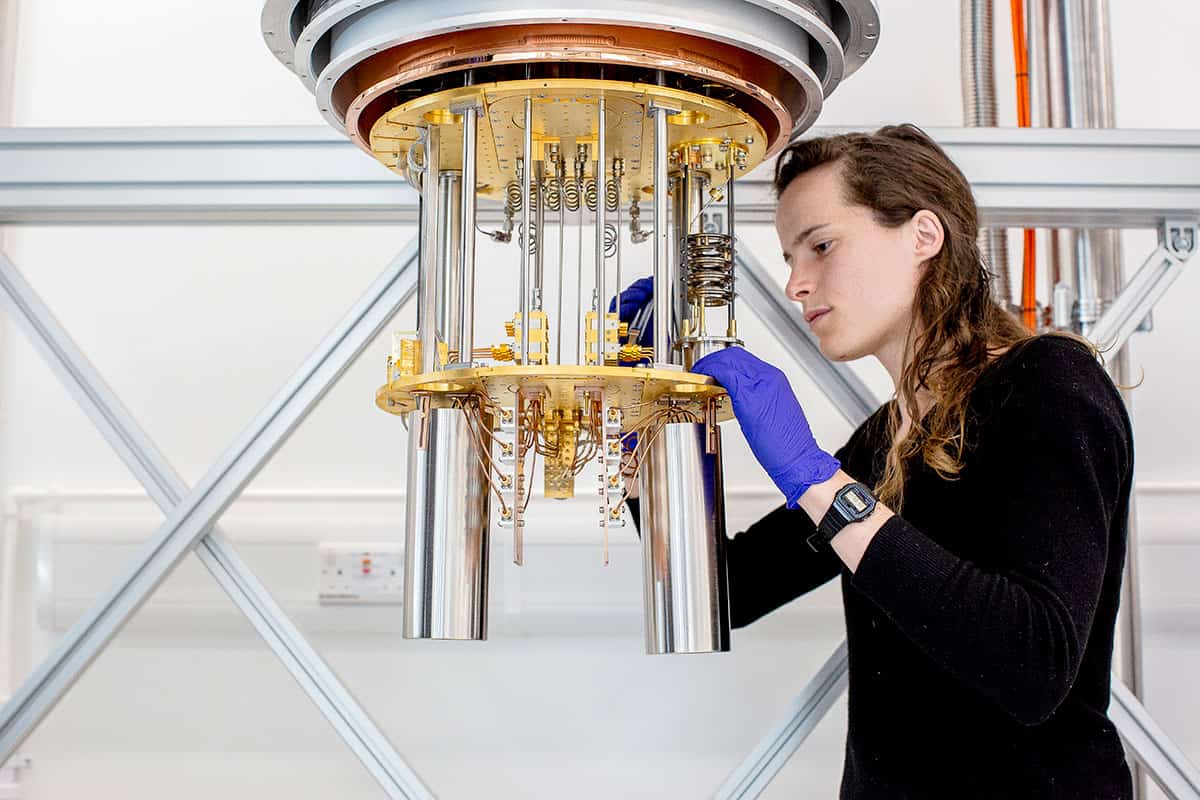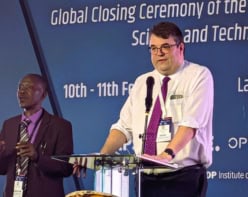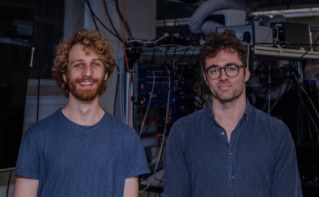Oxford Quantum Circuits chief executive llana Wisby talks to Tushna Commissariat about the challenges of the quantum start-up sphere, the funding available in the UK, how to scale up quantum computers

It’s no surprise to anyone that quantum computing will have far-reaching impact in most areas of industry and communication. For physicist and “deep-tech” entrepreneur Ilana Wisby, the key to solving some of the 21st century’s most pressing challenges – from data security and drug discovery to climate science and artificial intelligence – lies in quantum computers. Wisby should know: she is the chief executive of the pioneering UK start-up Oxford Quantum Circuits (OQC).
Spun off from the University of Oxford in 2017 by fellow physicist Peter Leek, a year later the firm had built and launched the UK’s best superconducting quantum computer. In July this year, OQC followed in the footsteps of the likes of IBM and launched Europe’s first “quantum computing-as-a-service” (QCaaS) cloud-computing platform. “The launch of our QCaaS platform is not only a remarkable achievement in the history of OQC, but is a significant milestone in unlocking the potential of quantum computing both in Europe and globally,” says Wisby. Here, she talks to Physics World about the challenges of the quantum start-up sphere, the funding available in the UK, how to scale up quantum computers and more.
What’s it like being at a start-up and competing for funding in quantum technology right now? And where do you see the UK, when it comes to the global quantum technology race?
At OQC we are often compared to much larger companies, especially US-based ones. In the US, which has its own niche capital market that is risk-tolerant, these large companies often run huge fundraising campaigns to the tune of tens of millions. I am proud that we’ve achieved similar performances to much larger competitors with a lot fewer resources. That resource-efficient approach is recognized as one of OQC’s USPs within the investors community. We are demonstrating the type of return on investment they’re looking for.
I am proud that we have been able to achieve similar performances to much larger competitors, with a lot fewer resources
Part of being a start-up is that you are always trying to be innovative and therefore you can have an element of, “do what you can with what you have”. I think that hustle is something that the UK really has a drive for, and is within all of us. The UK has been key in pioneering the quantum programme, and there was government buy-in way ahead of much of the world. The likes of the EU, China and the US are of course bigger today, but we did share a lot of early work and research. This means that the UK has a diverse range of quantum technologies, and particularly when it comes to quantum sensing, the field is doing very well. We’ve also got a lot of momentum in quantum key distribution and cryptography.
So the UK is known for being a leader, particularly in academia. Where it historically has struggled is translating the academic innovation through to successful companies that remain in the UK. The government is very aware of this, and has opened a significant amount of investment focusing on research and development in quantum technologies. I firmly believe that the UK quantum scene is world-leading, particularly in the start-up sector. The way in which we collaborate with each other and encourage the sharing of ideas is, I think, important because we need to build a quantum ecosystem in order for it to be successful.
It’s not just about scaling up into big systems. Quality over quantity is what we have been focusing on, and with 10 orders of magnitude less money, we’ve got the same quality and the same power of devices, because we’re building smart. We’re building from the foundations, to get simple, scalable and flexible tech. It’s about investing in a design rather than just chasing scale.
At OQC, you focus on superconducting qubits, but there are a number of other types being exploited, such as cold ions and even silicon. Is there going to be one winner that comes out on top, or will we more likely see different qubits for different tasks?
This is not a race where there’s a one-horse winner. I come from a background of hybrid quantum systems, and I’ve worked with superconducting systems. But if we look at the computing market as a whole, and how that network is built, there are specific systems that are optimized for specific purposes.
I’m sure that there will be some technologies that are more widely adopted than others – if you want to do calculations quickly, and especially in the near term, superconducting circuits are the way to go. But if we’re starting to think about building an entire quantum network, I genuinely think there will be different elements that are more suited for different components of a future quantum computer. And right now, all of these technologies are room-sized, like we were in the 1960s with classical computation. We’ve got a long way to go before it’s an equivalent to what we have classically today – something that doesn’t need specialist engineers to make it work.
The other thing is, it’s really hard to get an objective take on which qubit is the best, as everybody’s biased to their own. At OQC, we are trying to understand the advantages, disadvantages and market for each of them. If you can find someone who can do that independently, I want to talk to them!

As of now, we have four-qubit devices, which you can’t do true applications with, but we are soon scaling up to deliver larger-scale devices. Also, the number of qubits in any system is the worst measurement, as it’s a vanity metric. And this is where, while our four qubits may not stand up to those with 52 or 72 at first glance, all of those qubits are comparable to the best devices at this stage. Indeed, our qubits show high coherence and very low crosstalk. What we are trying to show now is that they are scalable, and as our company comes out of academia and into the R&D phase, we can look at things like scaling and engineering systems.
Going back to qubits, this is where benchmarking is so important, but currently there’s no independent approach. People are starting to talk about this, and the idea of “quantum volume” – which looks at number of qubits, connectivity and quality factors – is starting to head in the right direction.
Building a quantum-powered future
Do you feel that there is a risk of hype in quantum computing, and the promises it makes, especially when it comes to people outside of the field?
Everyone talks about hype, but for me there’s a spectrum of thoughts when it comes to quantum technologies. You get some people who heavily lean towards an academic perspective, and don’t think anything should be said unless it’s been published and peer reviewed. And then others have already promised to solve the COVID-19 crisis using quantum computing. What I’m trying to do is to have an authentic voice that sits in the middle.
Even then, we’re having to justify saying that this field is going to be visionary. Quantum technologies are going to change the world, and I’m comfortable saying that the applications will be revolutionary and have a significant societal impact in a few years. But there are others who might find it uncomfortable saying even that much.
Quantum technologies are going to change the world, and I’m comfortable saying that the applications will be revolutionary and have a significant societal impact
For me, it’s about being able to help others understand that we do need to bring in the wider world. We need to engage with skills and people who don’t currently know that quantum exists. And the way to get their attention is for them to understand a concept or become interested in something that’s inspirational and conceptually cool – even if it’s not necessarily completely scientifically accurate. I’m okay with that.
Ultimately, as an industry, we need end users and we need that customer pull. We’re growing an industry and an ecosystem, and for that we need to be able to talk to a variety of people, whether they’re quantum specialists or software engineers or lab managers or marketing specialists. We need to be able to talk to everybody about what we’re doing, and that requires different strategies and a different language than purely scientific.




